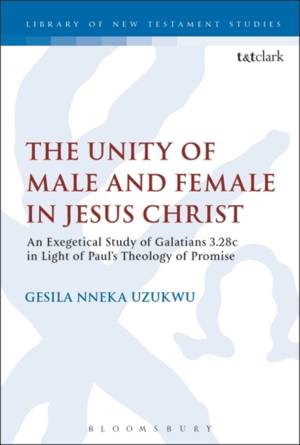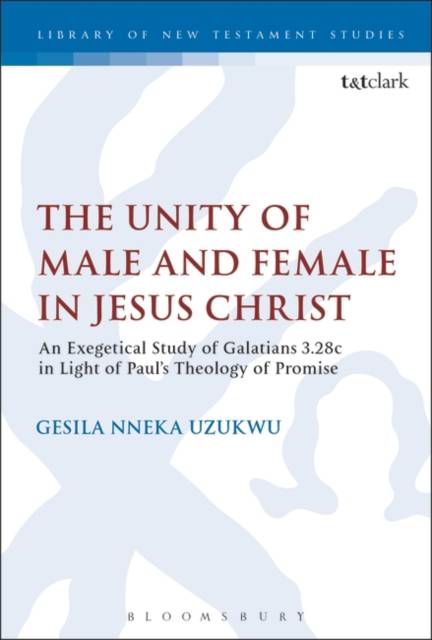
- Retrait gratuit dans votre magasin Club
- 7.000.000 titres dans notre catalogue
- Payer en toute sécurité
- Toujours un magasin près de chez vous
- Retrait gratuit dans votre magasin Club
- 7.000.0000 titres dans notre catalogue
- Payer en toute sécurité
- Toujours un magasin près de chez vous
The Unity of Male and Female in Jesus Christ
An Exegetical Study of Galatians 3.28c in Light of Paul's Theology of Promise
Gesila Nneka Uzukwu
81,45 €
+ 162 points
Format
Description
This detailed exegetical study of Gal 3.28c in the light of 3.14-29 and 4.21-31 shows not only how integral this verse is to chapters 3 and 4 of the letter, but also that it is the key to understanding Paul's theological argument of promise in Galatians. Paul's use of the story of Abraham in 3.14-29 and of Sarah in 4.21-31 in light of God's promise to the patriarch and the matriarch in Genesis 17 have implications displays the joint role of Abraham and Sarah in bringing about the promise, and underscores the unity of the believers in Christ.
In light of this, Uzukwu examines important aspects of the history of the interpretation of Gal 3.28c. Uzukwu sheds light on the link between Gal 3:28 and the three expressions of gratitude found in Greek writings. Links are also revealed to the three blessings of gratitude that appear at the beginning of the Jewish cycle of morning prayers, Gen 1.27c (in the Septuagint), and the alleged pre-Pauline baptismal formula. She goes further to demonstrate how 3.28c is related to the unity of Galatians 3-4, focusing on the theme of the promise as the text discusses the effect of the Christ event in bringing about the fulfillment of that promise.
In light of this, Uzukwu examines important aspects of the history of the interpretation of Gal 3.28c. Uzukwu sheds light on the link between Gal 3:28 and the three expressions of gratitude found in Greek writings. Links are also revealed to the three blessings of gratitude that appear at the beginning of the Jewish cycle of morning prayers, Gen 1.27c (in the Septuagint), and the alleged pre-Pauline baptismal formula. She goes further to demonstrate how 3.28c is related to the unity of Galatians 3-4, focusing on the theme of the promise as the text discusses the effect of the Christ event in bringing about the fulfillment of that promise.
Spécifications
Parties prenantes
- Auteur(s) :
- Editeur:
Contenu
- Nombre de pages :
- 272
- Langue:
- Anglais
- Collection :
Caractéristiques
- EAN:
- 9780567683106
- Date de parution :
- 28-06-18
- Format:
- Livre broché
- Format numérique:
- Trade paperback (VS)
- Dimensions :
- 156 mm x 234 mm
- Poids :
- 385 g

Les avis
Nous publions uniquement les avis qui respectent les conditions requises. Consultez nos conditions pour les avis.






